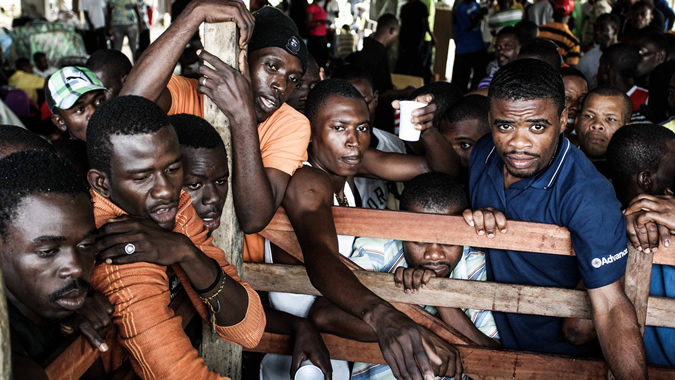Press Release
According to UN figures, one in 33 people worldwide is a migrant. In 2010, there were around 30 million international migrants in Latin America and the Caribbean, according to ECLAC data. Although these people make valuable contributions to their destination countries and their communities, they remain exposed to mistreatment, discrimination, slavery, prostitution and other situations that infringe upon their human rights.
There needs to be a debate about migration to contribute to policymaking and the formulation of regional and international agreements. In this context, the Economic Commission for Latin America and the Caribbean (ECLAC), in conjunction with the International Organization for Migration (IOM), and with the support of the United Nations Population Fund (UNFPA - LACRO), are organizing the Latin American and the Caribbean regional expert meeting on international migration in preparation for the High-level dialogue on international migration and development, which will be held on 10 and 11 July 2013 in Santiago, Chile.
The reference framework for the meeting will be the themes of the Second High-Level Dialogue on International Migration and Development, which will be held during the 68th session of the United Nations General Assembly, and which will focus on identifying concrete measures for strengthening coherence and cooperation, with a view to promoting the benefits of international migration, as well as strengthening its links with development to reduce its negative aspects.
At the regional meeting, experts will examine the impact of migration on sustainable development, measures aimed at protecting migrants' human rights, the strengthening of cooperation and specific regional characteristics.
Migration will also be part of the debate at the Caribbean Forum on Population, Migration and Development, which will be held in Georgetown, Guyana, on 9 and 10 July 2013, and is being organized by ECLAC, the Caribbean Community (CARICOM), the Government of Guyana and UNFPA.
Participants at the meeting will be presented with a report on Caribbean implementation of the Action Plan for the International Conference on Population and Development in population matters, including migration. The region has a shortage of skilled people at all levels, not only because of shortcomings in the educational system, but also due to the exodus of skilled workers (mainly to the United States and Europe).
Another aspect to be discussed is the relationship between population and sustainable development. Caribbean islands are suffering the effects of climate change, and this combines with the constant risk of natural disasters such as volcanic eruptions, hurricanes and earthquakes (which may generate mass population movement).
The meeting will also analyse the consequences of population ageing in various public policy areas, with emphasis on the operation and sustainability of social protection systems.
The situation of older people will also be the subject of the First Follow-up Meeting of the San Jose Charter on the rights of older persons in Latin America and the Caribbean, which is being organized by the National Council for Older Adults (CONAPAM) and the Ministry of Foreign Affairs and Religion of Costa Rica, with technical support from ECLAC, on 3 to 5 July in San José, Costa Rica.
This activity is being organized in accordance with decisions made at the third Regional intergovernmental conference on ageing in Latin America and the Caribbean, where the San Jose Charter was adopted in May 2012. The meeting aims to accelerate the national implementation of this agreement, as well as contributing to the international process of increasing human rights protection for older adults within the United Nations framework.
All three meetings are the lead up to the First session of the Regional Conference on Population and Development in Latin America and the Caribbean, which is being organized by ECLAC, with the support of UNFPA, to bring together 450 government representatives from all Latin American and Caribbean countries, other nations, civil-society organizations, United Nations agencies, academics and population experts.
Its main objective is to review 20 years of progress of the Plan of Action of the International Conference on Population and Development in Latin America and the Caribbean, as well as identifying key measures for expanding and continuing the implementation of the Plan of Action after 2014.



